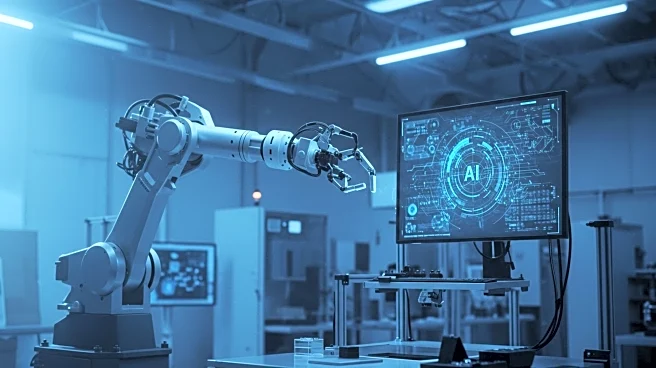What's Happening?
MIT has launched the Initiative for New Manufacturing (INM) to transform U.S. manufacturing through AI and automation. Led by John Hart, head of MIT’s Department of Mechanical Engineering, the initiative seeks to enhance productivity, resilience, and job creation in the manufacturing sector. INM builds on the Manufacturing@MIT program and involves collaboration with industry partners such as Amgen, Autodesk, and Siemens. These partners will engage in research and strategy development to integrate AI and automation into manufacturing processes. The initiative also focuses on education and workforce training, aiming to elevate manufacturing as a rewarding career path.
Why It's Important?
The initiative is significant as it addresses the decline in U.S. manufacturing employment and innovation. By integrating AI and automation, MIT aims to revitalize the manufacturing sector, which is crucial for economic and national security. The collaboration with industry partners highlights the importance of technological advancement in maintaining competitive manufacturing capabilities. This effort could lead to increased investment in manufacturing infrastructure and create new job opportunities, thereby strengthening the U.S. economy. The focus on education and workforce development is essential for preparing the next generation of manufacturing professionals.
What's Next?
MIT plans to open new manufacturing-related labs and expand cooperation with industry at existing facilities. The initiative will continue to develop strategies for deploying AI and automation in manufacturing, with industry partners actively participating in research and educational programs. The collaboration aims to address challenges such as workforce training and capital investment in new manufacturing technologies. As the initiative progresses, it may influence policy decisions and encourage further investment in the U.S. manufacturing sector.
Beyond the Headlines
The initiative could lead to ethical and cultural shifts in the perception of manufacturing careers. By advocating for manufacturing’s critical role in society, MIT aims to elevate interest in the field and promote it as a viable career path. The integration of AI and automation also raises questions about the future of work and the balance between human labor and machine efficiency. These developments may prompt discussions on the ethical implications of automation and its impact on employment.











